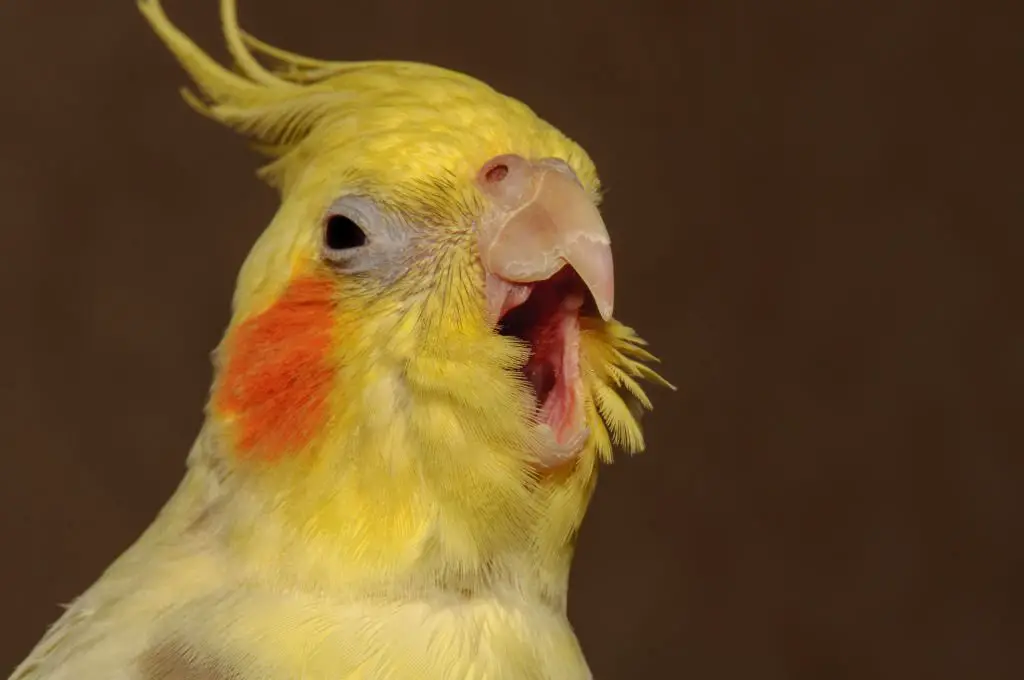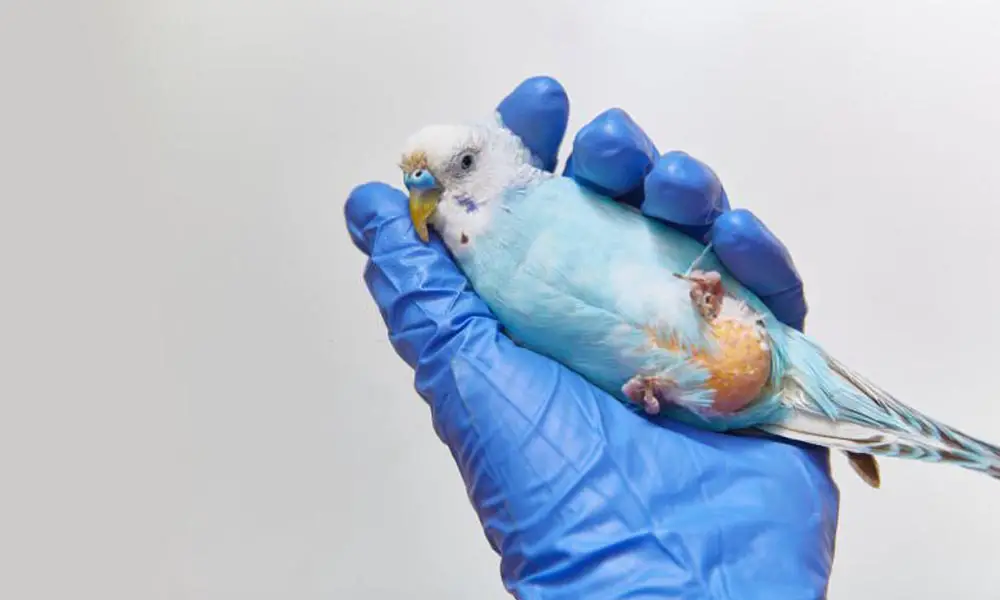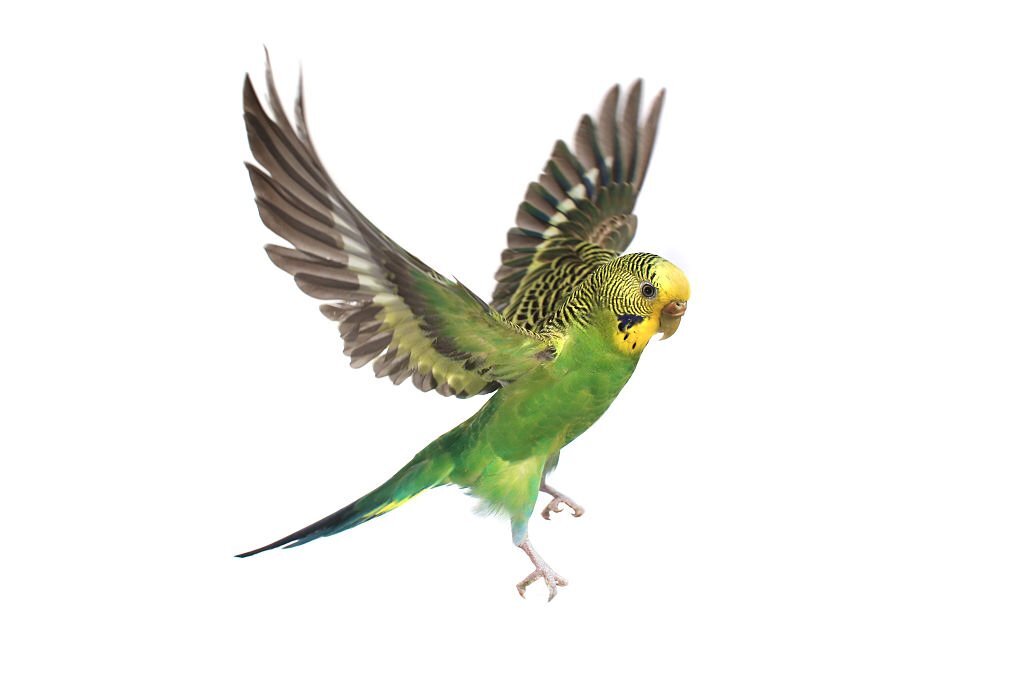If you’ve ever found yourself asking, “Why is my budgie shaking?”, you’re not alone. It is a question that can cause concern and anxiety for pet owners who adore their feathered companions.
In this comprehensive guide, we will delve into the various reasons behind budgie shaking, addressing the key question at the forefront of your mind. By the end of this article, you’ll have a clear understanding of what might be causing your budgie to shake, allowing you to take appropriate steps to ensure your pet’s health and happiness.

Contents
Why Is My Budgie Shaking?
The reason your budgie shakes is based on many factors. It includes both subjective factors such as the budgie’s physical condition and objective factors such as the impact of the environment.
Illness and Health Issues
Budgies, like all pets, can experience health problems. Shaking can be an early sign that something is amiss with your budgie’s well-being. Some common health-related causes of budgie shaking include:
- Respiratory Infections: Respiratory infections can cause your budgie to shake due to discomfort or fever. Keep an eye out for signs like sneezing, nasal discharge, or labored breathing.
- Parasitic Infestations: Mites and other parasites can irritate your budgie’s skin and feathers, leading to shaking. Check for signs of feather damage or bald spots.
- Hypothermia: Budgies are sensitive to temperature changes. If they are exposed to cold drafts or low temperatures, they may start shivering.
- Malnutrition: A poor diet can lead to nutritional deficiencies, which can result in various health problems, including shaking. Ensure your budgie is getting a balanced diet.
Stress and Anxiety
Budgies are social creatures, and changes in their environment or lack of interaction can stress them out. Stress and anxiety are common behavioral causes of budgie shaking. Some factors that can contribute to stress include:
- Changes in Environment: Moving to a new location or rearranging their cage can be unsettling for budgies.
- Lack of Social Interaction: Loneliness and isolation can lead to stress. Budgies need companionship and mental stimulation.
- Presence of Predators or Other Pets: If there are predators or other pets around, your budgie may constantly feel threatened, leading to anxiety and shaking.
Environmental Factors
The environment in which your budgie lives plays a significant role in their health and well-being. Environmental factors that can cause budgie shaking include:
- Cold Temperatures: Budgies are native to warm climates, so they are sensitive to cold. Exposure to low temperatures can make them shiver.
- Drafts: Drafts within the room where your budgie’s cage is located can create discomfort and lead to shaking. Ensure their cage is in a draft-free zone.
- Poor Cage Placement: Placing the cage in direct sunlight or near heating vents can lead to temperature extremes that affect your budgie’s health.
Observing Budgie Behavior to Determine Budgie Shaking
To determine the cause of your budgie’s shaking, it is crucial to pay close attention to their behavior. In addition to shaking, watch for other related behaviors that may provide clues:
Signs of Shaking
- Physical Tremors: Look for noticeable trembling or shivering in your budgie’s body or wings.
- Fluffed-up Feathers: Budgies may fluff up their feathers to trap warm air and reduce heat loss when they’re cold or unwell.
- Frequent Head Bobbing: While budgies often bob their heads as a sign of curiosity or playfulness, excessive head bobbing can be a sign of illness or discomfort.
Other Related Behavior
- Changes in Eating and Drinking Habits: Monitor your budgie’s appetite and water consumption. A sudden decrease in food intake may indicate a problem.
- Decreased Activity Levels: If your budgie becomes lethargic and less active, it may be a sign that they’re not feeling well.
- Unusual Vocalizations: Listen for any changes in your budgie’s vocalizations. They may become quieter or exhibit distress calls when they’re unwell or stressed.

When Budgie Needs Seeking Veterinary Care
While some instances of budgie shaking may be temporary and resolve on their own, others require prompt attention from a veterinarian. Here are some situations in which you should seek professional care:
- Persistent or Severe Shaking: If your budgie’s shaking continues for an extended period or becomes increasingly severe, consult a veterinarian.
- Combination of Symptoms: If shaking is accompanied by other concerning symptoms such as difficulty breathing, discharge from the eyes or nostrils, or severe lethargy, seek immediate veterinary care.
- Sudden Onset of Shaking: If your budgie starts shaking suddenly and you cannot identify an obvious cause (such as exposure to cold), it’s essential to consult a veterinarian.
- Behavioral Changes: Any significant changes in your budgie’s behavior or demeanor, such as increased aggression, withdrawal, or loss of interest in toys and social interactions, should prompt a vet visit.
Home Care Tips when Your Budgie Shake
While professional veterinary care is essential for addressing underlying health issues, you can take steps to improve your budgie’s overall well-being and minimize the risk of shaking.
Adjusting the Environment
- Optimal Temperature: Maintain a comfortable temperature for your budgie, ideally between 65°F and 75°F (18°C to 24°C), to prevent cold-induced shaking.
- Draft-Free Location: Place your budgie’s cage in a location where it’s shielded from drafts and direct sunlight.
Providing Proper Nutrition
- Balanced Diet: Ensure your budgie receives a balanced diet that includes a variety of fresh fruits, vegetables, high-quality pellets, and seeds.
- Clean Food and Water: Keep food and water dishes clean and refreshed daily to prevent contamination and spoilage.
Socializing and Interacting with Your Budgie
- Companionship: Budgies are social birds and thrive on interaction. Spend time with your budgie daily to prevent loneliness and reduce stress.
- Toys and Enrichment: Offer a variety of toys, perches, and activities to keep your budgie mentally stimulated and engaged.
Regular Cage Cleaning and Maintenance
- Cleanliness: Maintain a clean cage environment by regularly cleaning and disinfecting perches, toys, and the cage itself.
- Health Checks: Monitor your budgie’s health regularly by observing its behavior, feathers, and droppings.
Conclusion
To sum up, if you’ve ever found yourself pondering, “Why is my budgie shaking?”, this article has provided you with valuable insights into the potential causes behind this behavior. Understanding your budgie’s health and well-being is paramount to being a responsible pet owner. By recognizing the signs, observing their behavior, and taking appropriate action when needed, you can ensure a happy and healthy life for your beloved feathered companion. Remember, your budgie’s welfare is in your hands, and staying informed is the first step towards providing them with the care and attention they deserve.







